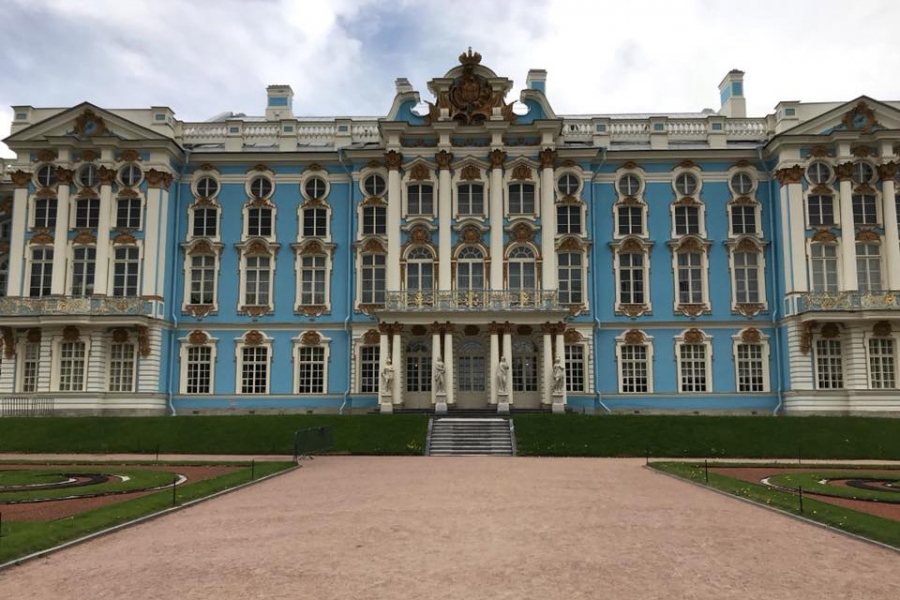
How looking past vodka and politics opens a whole new world
 What can the Russians teach us? I asked this question as I packed my bags, preparing to leave the country I’d called home for the last four months. It’s a question of immeasurable importance, as we find ourselves fighting a neo-Cold War against a foe most Americans do not understand and don’t want to.
What can the Russians teach us? I asked this question as I packed my bags, preparing to leave the country I’d called home for the last four months. It’s a question of immeasurable importance, as we find ourselves fighting a neo-Cold War against a foe most Americans do not understand and don’t want to.
The political stigma surrounding Russia has reached hysterical proportions, one I’m not sure has been surpassed in the millennial lifetime. The special investigation by Robert Mueller into Trump ties to the Kremlin, along with the 2016 election cyber-sabotage orchestrated by Putin himself, has brought a fear that conflates the Russian government with its people.
One of the great things about studying abroad, or just traveling in general, is the opportunity to see a place and meet its people unfiltered. Our home media is unlimited in its ability to muddle us with bias. There’s reduced exposure to ideas that blind us to the benefits of harmony and global outreach — think protectionism and the crusade against globalization. There may be misconceptions and stereotypes we bring with us, but even a short time abroad will generally add more nuance to these premonitions or dispel them altogether.
Studying abroad has an almost mystical reputation. The idea is that an experience sipping wine near the Eiffel Tower or feeling the rare London sun along the banks of the Thames is the perfect way to enrich ourselves while attending school. We can take part in cultural immersion that gives us something different than what we know back home. We can meet our own counterparts born across oceans, mountain ranges and deserts. Friendships can form and, if life gives us the opportunity, they can last.
Our advisors in Russia informed us about the burden of our ambassadorship once we returned home to the United States. The stories we told and the details we omitted would allow our fellow Americans to understand the real Russia, not the one focused on vodka, bears and a shirtless Putin riding a horse. Those things exist, in some respects, but even the dullest internet research and the smallest bit of curiosity would show the richness of Russia without all the stereotyping.
Settling down back in the United States, it didn’t take long for reductive statements about Russia to reveal themselves. It wasn’t surprising, or new — I’d just failed to notice them before. In one segment of a popular ESPN radio show, the host joked that only two things are served hot in Russia, one of them being vodka. My barber asked how much vodka I consumed, but the questions stopped there (I thought the beer was tastier, anyway).
To the average citizen of the world — be it here or anywhere else — it seems Russia is often distilled to a single essence or, in this case, drink.
And it’s not just alcohol that runs the gamut of simplified perceptions. The adage that paints Vladimir Putin as a controversial leader ignores the fact that nearly 80 percent of Russian voters chose him in the most recent elections, and more than that number approve of the job he’s doing for the country.
President Trump is controversial in our country and outside. Putin is demonized by the outside world to far greater effect than within his own borders, reflecting the West’s self-aggrandizing way of viewing outside places through the “Other” lens.
Russia is maligned for a few good reasons, but they needn’t be the final verdict. Election hacking and a tendency to peddle misinformation over its involvement in quite a few international scandals, some involving death, are good reasons to criticize Putin’s government.
But criticizing its method of governance because it doesn’t follow the Western-democratic model — as the American psyche almost demands of other nations — minimizes Russia’s history. Strong rulers from the top down offer comfort and stability to much of the populace, and it has almost always been that way.
Besides, there are many positive aspects of Russian society that don’t get much coverage at all. Take education, for example.
According to the most recent data available, Russia is one of the most highly educated countries in the world — over 50 percent of Russians aged 25 to 64 have a tertiary education, second only to Canada.
Russia is also one of the most literarily inclined. The average Russian will spend seven hours a week reading books, good for one of the top spots in the NOP World Culture Score Index from 2005. Reading is clearly a national pastime. Steep discounts at book retailers encourage people to grab classic literature, including works by foreigners.
Long commutes by metro and bus are managed by bringing a book — it’s normal for half the passengers to be carrying one, according to my own estimates. Even metro stations themselves are often named for esteemed authors of the Russian literary tradition. A trip underground in St. Petersburg will take you through stops honoring Gorky, Dostoevsky and Pushkin. A visit to Moscow will inspire the curious onlooker to pick up Chekov and Mayakovsky.
I’ve been asked about anti-American sentiment abroad, and whether I’ve encountered much. In that respect, Russia seems to be one of the most feared places — perhaps due to the State Department’s travel advisory list. It’s an interesting question, and a well-meaning one. We expect the world to be dangerous for us, because that’s what we’re told.
When thinking of Russia, I recall laughter instead of danger — laughter with local students as we try to understand each other’s jokes, made more difficult by language; with my hostess after fumbling a translation; with friends who taught me the finer points of barbecuing kebabs over an open fire.
I recall beauty, found under warm boots and half-frostbitten ears when the sun goes down and the chill subsequently turns to icy madness. Beauty is found in the flowers and blue canals once winter turns to spring and people shed their heavy overcoats for slightly lighter ones.
I’ve written about the allure of St. Petersburg and the therapeutic, cross-continental journey of the Trans-Siberian Railway. Russia’s magic lies in her landscape, her cities and her people. If only we sprinkled a little more effort into understanding the place we’ve feared for so long.
Written by: Nick Irvin — ntirvin@ucdavis.edu
Disclaimer: The views and opinions expressed by individual columnists belong to the columnists alone and do not necessarily indicate the views and opinions held by The California Aggie.



